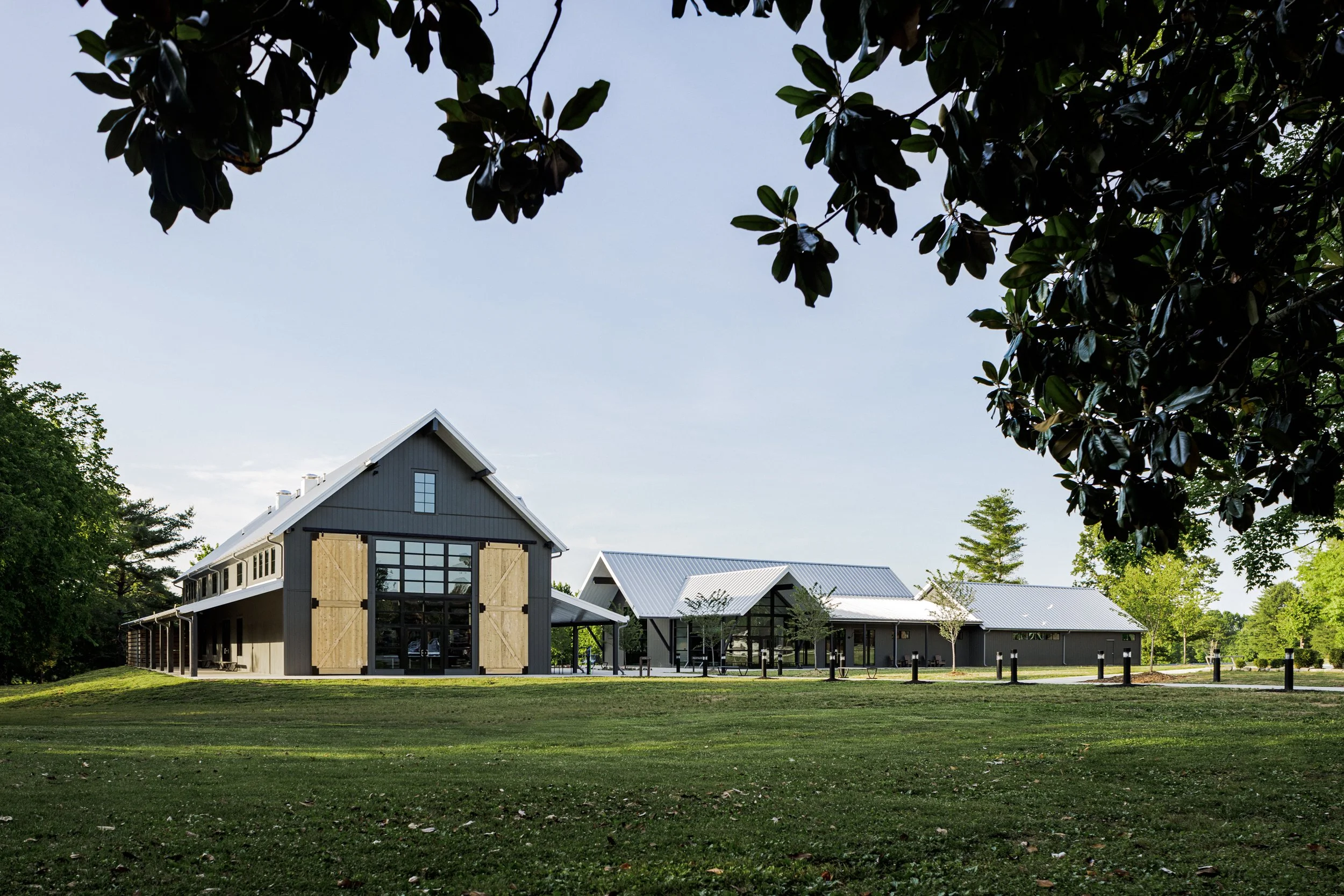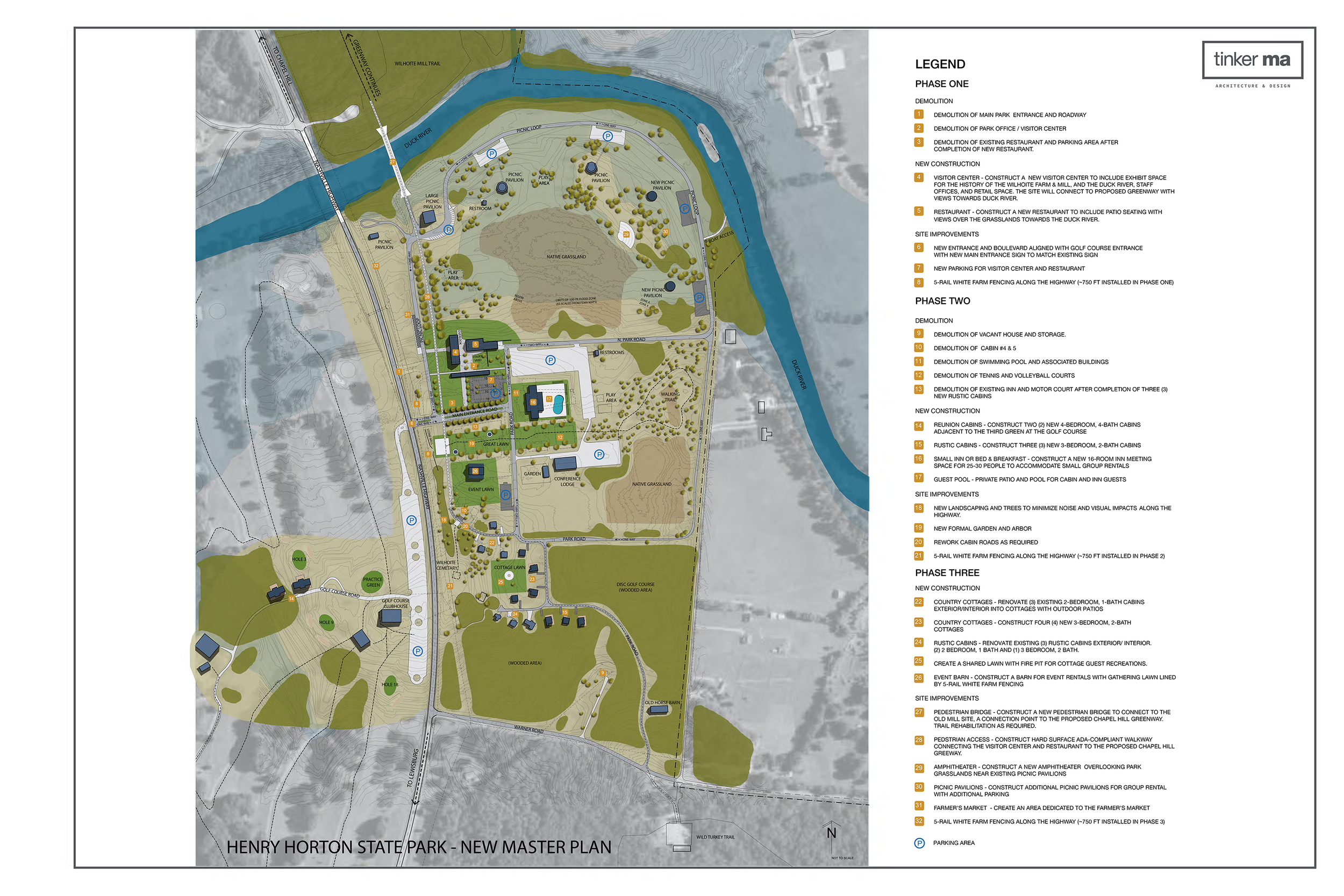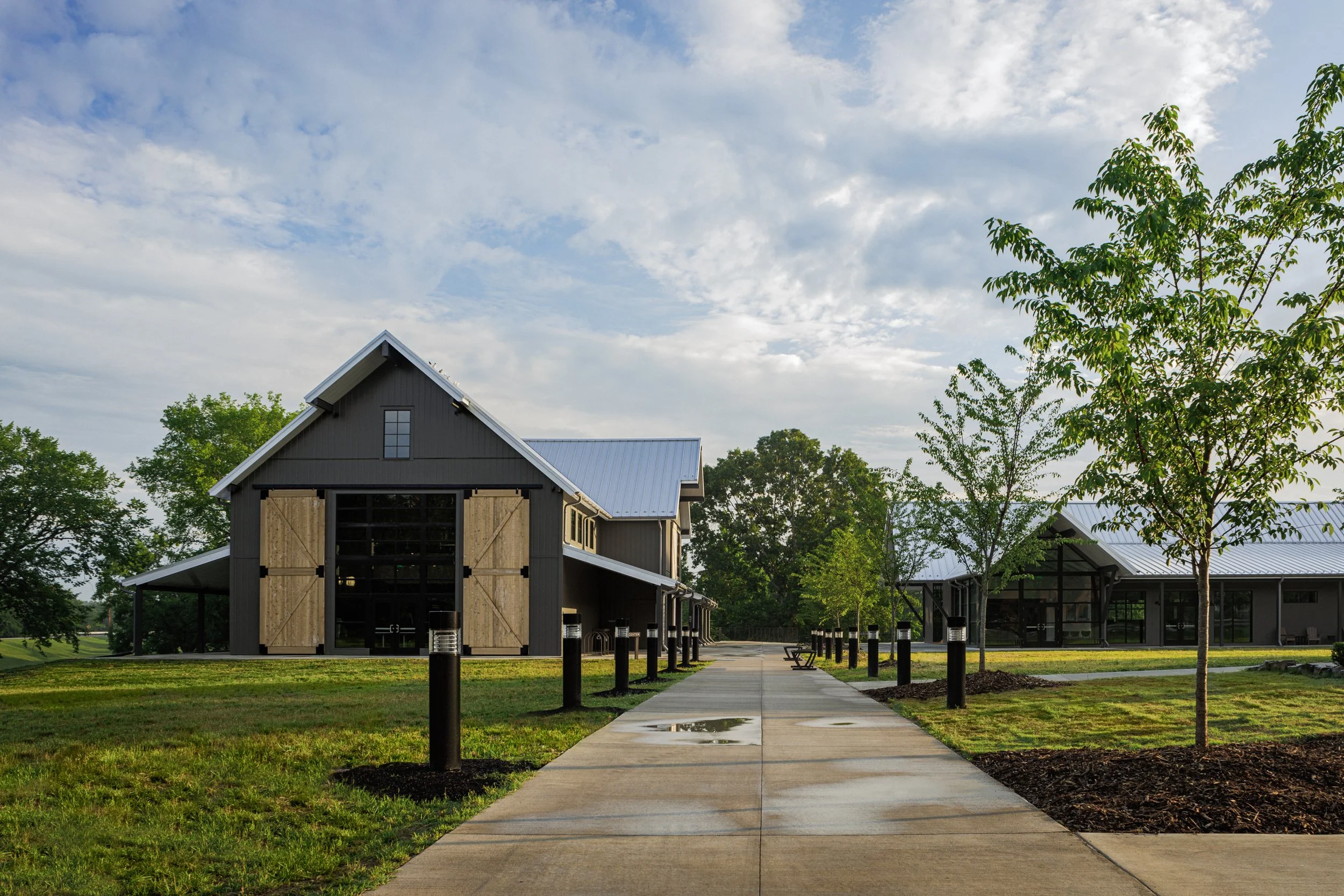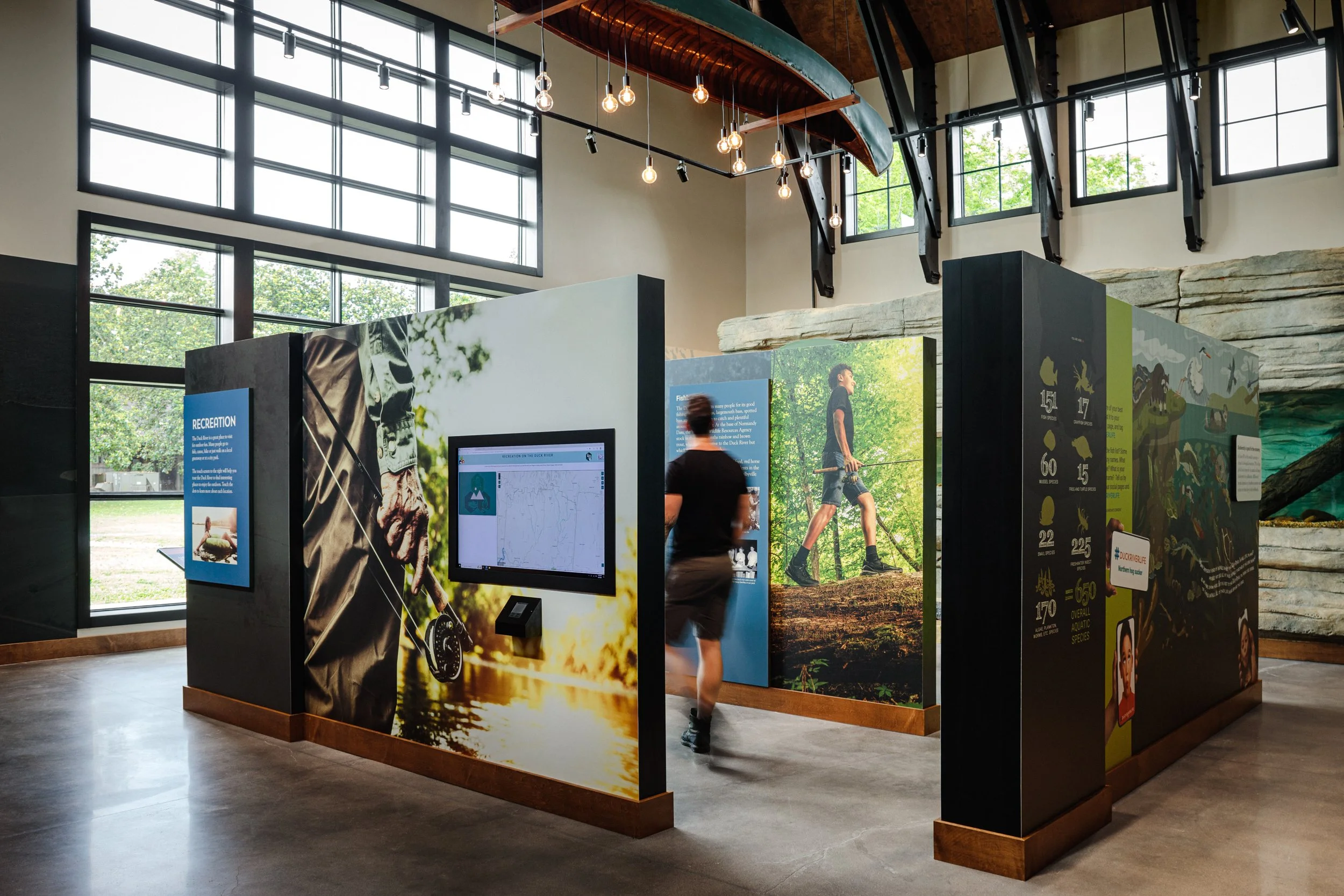The Henry Horton State Park Master Plan was a study to re-envision and reorganize the Park circulation, facilities, and amenities to provide a more cohesive visitor experience and to reposition the Park as a leading destination for resorts and retreats in the region. The Tennessee Department of Environment and Conservation oversees the Tennessee State Park system and has been monitoring the facility needs and potential for increased visitation. With the rate of growth in the Greater Nashville Region, Henry Horton State Park has seen increased use of the park amenities and grounds. The Park focuses on providing quality resort and recreational facilities with an emphasis on amenities for corporate meetings, reunions, weddings, group retreats, and golf outings.
Located adjacent to Chapel Hill in Marshall County, Tennessee, along the Duck River, Henry Horton State Park is approximately 1526 acres consisting of two parcels of land. The property is divided by the Duck River and Nashville Highway into 4 distinct quadrants. The quadrants host (1) campgrounds, (2) natural recreation areas, (3) an 18-hole golf course, and (4) the main campus & resort area. The Park is working with Chapel Hill and TDOT to increase accessibility to the park for pedestrians or bicyclist by planning a new greenway infrastructure that will allow for multiple modes of transportation to and from the park’s extensive amenities. The 4 quadrants were taken into consideration for connectivity to each other with planning efforts focused on the main campus. The main campus is approximately 228 acres of the park which consists of a Visitor Center and Park Office, Inn, Restaurant, Pool and Concessions, Conference Center, Cabins, and open natural areas for recreation and picnicking.
With the property located along a river, the main campus master plan included site analysis of floodways within the property to determine acceptable building sites. With a heavily traveled highway dividing the property, studying the traffic along and through the main campus was also a priority to understand how improvements could be made. The planning process addresses the need to improve multiple modes of transportation to and from the site while allowing connection to the City of Chapel Hill.
The planning process also addresses phasing the work with the goal of minimizing displacement of existing lodging and conserving existing infrastructure where possible. Three phases were identified. Phase One addresses the visitor experience, orientation, education, and information by planning for a new entry boulevard onto the site, a new visitor center, and a restaurant to address the size and operational inefficiencies of the existing facilities built in the 1960’s. Phase Two addresses the resort lodging by increasing patron options with new rustic cabins, reunion cabins, and a smaller bed and breakfast with a guest pool. Phase Three continues to increase lodging, provides new meeting/event space, improves mobility through the park with a new pedestrian bridge provides safe passage across the Duck River, and increases day-use areas with new picnic pavilions and amphitheater. After the successful completion of the plan, Tinker Ma provided the design for the Henry Horton State Park Visitor Center and Restaurant.








